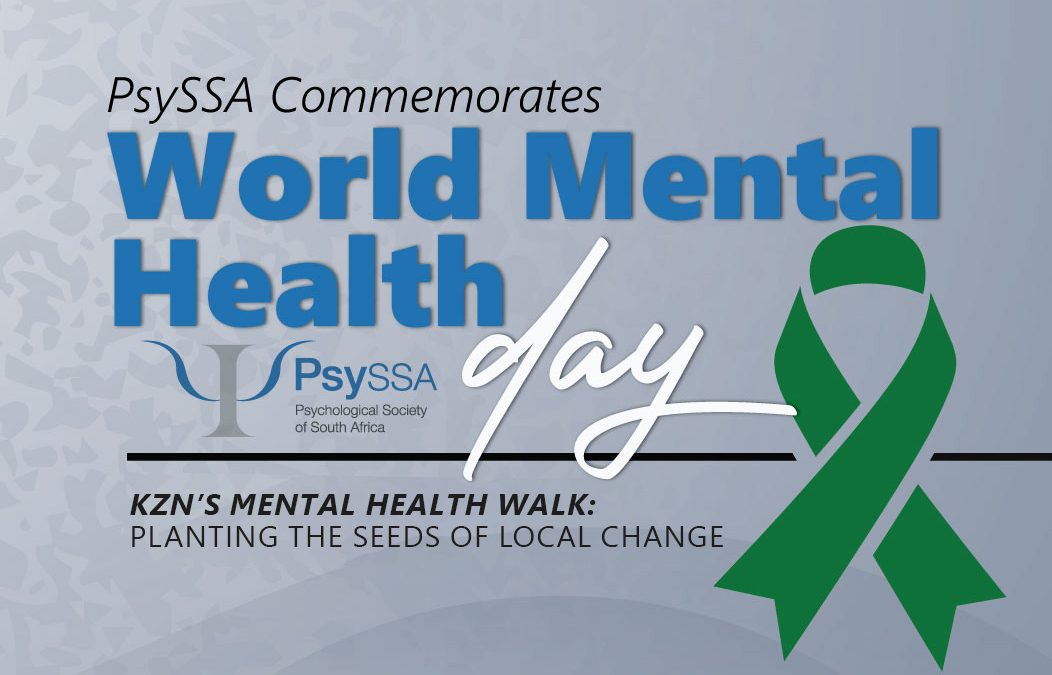Suntosh R. Pillay
The growth of the KwaZulu-Natal Mental Health Advocacy Walk is best captured by the infamous African saying, “If you want to go fast, go alone; but you if want to go far, go together”.
Now in our seventh year, when we began this event in 2016 we had modest expectations for a cause that isn’t perceived as ‘sexy’ or ‘newsworthy enough’ for the media. However, in three short years, the mainstream media did start paying increasing attention to us, and in 2019 we were on the evening news on SABC TV. Despite a two-year Covid-induced hiatus (where we experimented with virtual walks but had lukewarm results) we returned in full force on Sunday, for our first post-pandemic, in-person walk. Over 700 people registered!
The event is hosted by the KZN Mental Health Advocacy Group, an informal civil society network that my colleague Professor Suvira Ramlall and I started a few years ago. We also use the platform to host the annual Durban Mental Health Symposium, and since 2018 we evolved into the first satellite branch of the South African Depression and Anxiety Group (SADAG) outside of Johannesburg.
The walk is our flagship affair – but it’s more than a mere walk. It builds social capital in the province, makes it easier for people to ask for help when they are in distress or suicidal, and promotes healthy living, through Zumba, yoga, aerobics, dance, and meditation lessons. Ultimately, this walk is about allyship, solidarity and visibility – the beating heart of all activism.
As my friend and co-conspirator Prof Ramlall said at the walk: “What’s really inspiring is that we’re creating momentum, advocacy and activism from the bottom up, so that this event is community-driven. As a psychiatrist with thirty years of experience in public health, she knows mental health activism from every vantage point. I agree – lasting change, that goes further, rather than simply faster, must come from community collaborations. For this reason, we have no major corporate sponsor taking the lead in organizing this event. Quite frankly, we start our planning every year with zero budget. But somehow, always, people reach out, offer to buy, to sponsor, to donate, to volunteer, to carry, to drive, to do something. It is this spirit of togetherness, of collective ownership, that has kept this event strong, consistent, energetic, and fun. It’s hard work, but it’s worth it.
Blanche Moila, my former colleague, a retired nurse, is an 18-time Comrades runner. She joined the walk because despite her long career in psychiatry she said she still sees stigma against mental illness even though “it can effect anyone, whether you’re a professional, a labourer, whether you’re rich or you’re poor.”
I spotted Dr Sandile Kubheka at the walk, once the youngest doctor to qualify from the University of KwaZulu-Natal. He said the walk was a reminder that “taking care of ourselves is crucially important… we have to always make sure our mental health is in a good place.” As healthcare workers emerging from devastation of the Covid-19 pandemic, we must heed the good doctor’s prescription! Evidence shows that a simple walk has tangible psychological and emotional benefits.
Finally, as we commemorate October 10, World Mental Health Day, there will be many ‘big’ important-sounding conversations, such as Lancet commission launches, lofty sounding webinars, and rhetoric-infused editorials. #WMHD2022 often pivots the ‘global’ – but let’s do more to focus on the local. We must step up and be able to change our local conditions, first and foremost.
Suntosh R. Pillay is a clinical psychologist in Durban.







